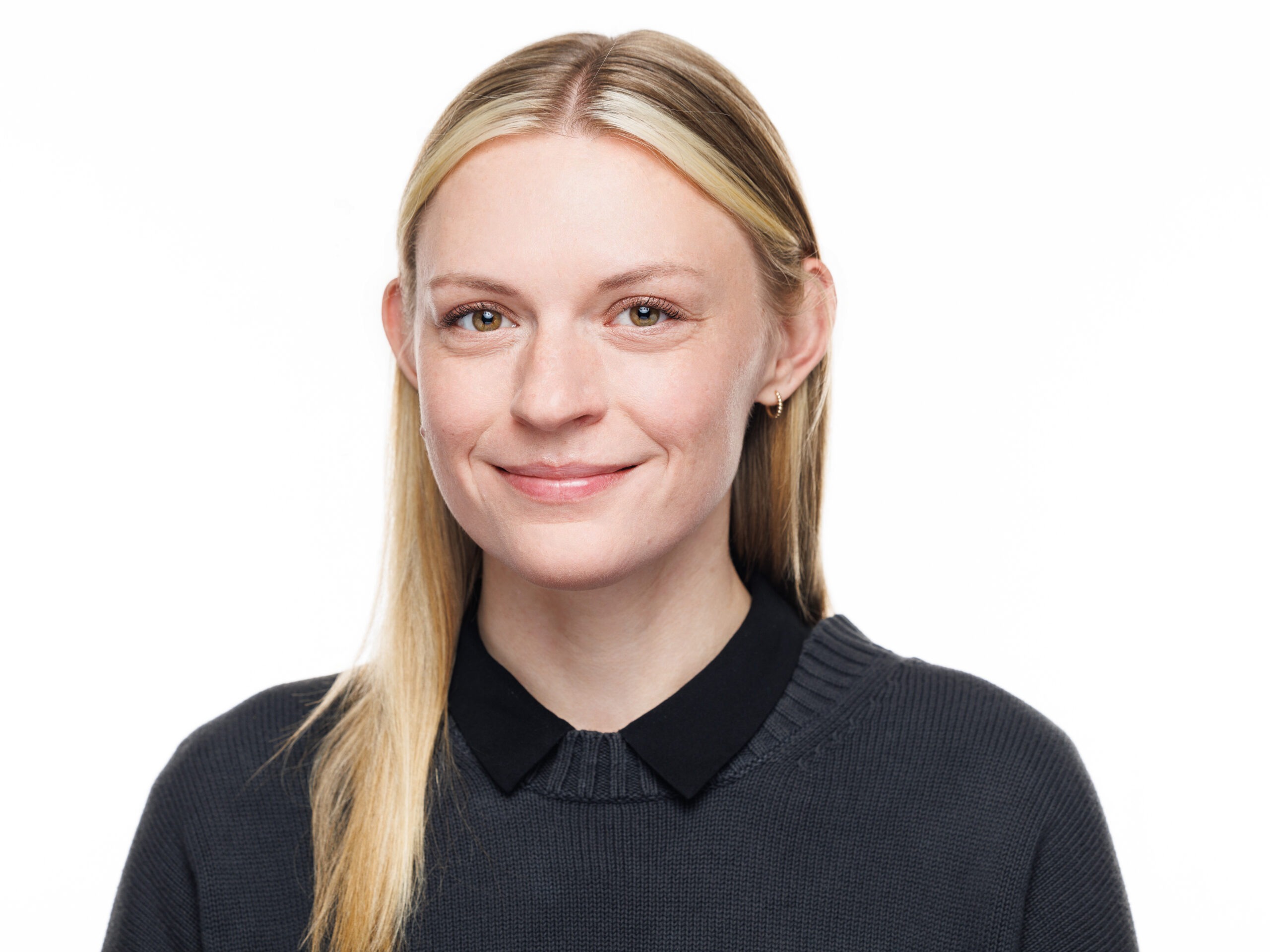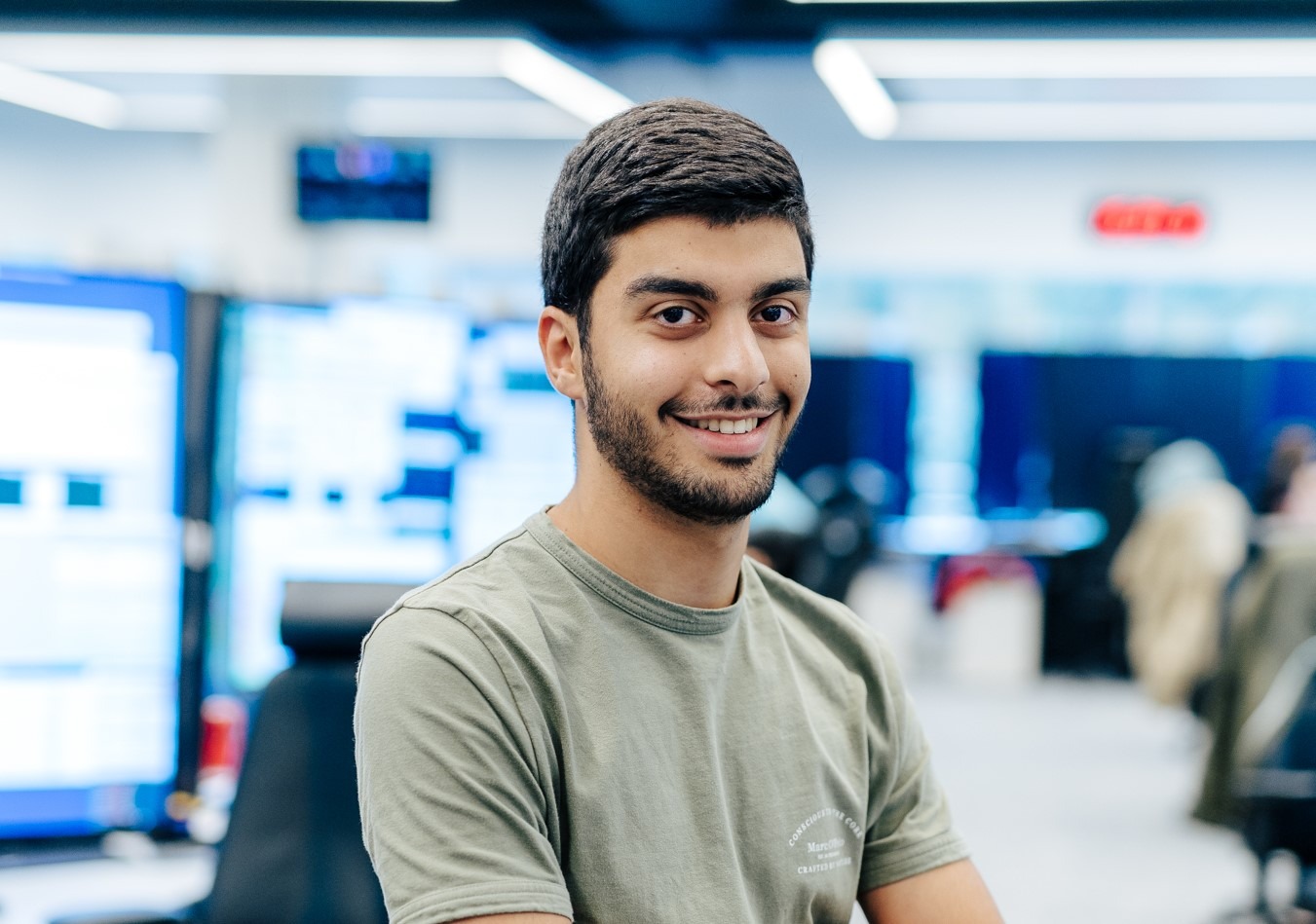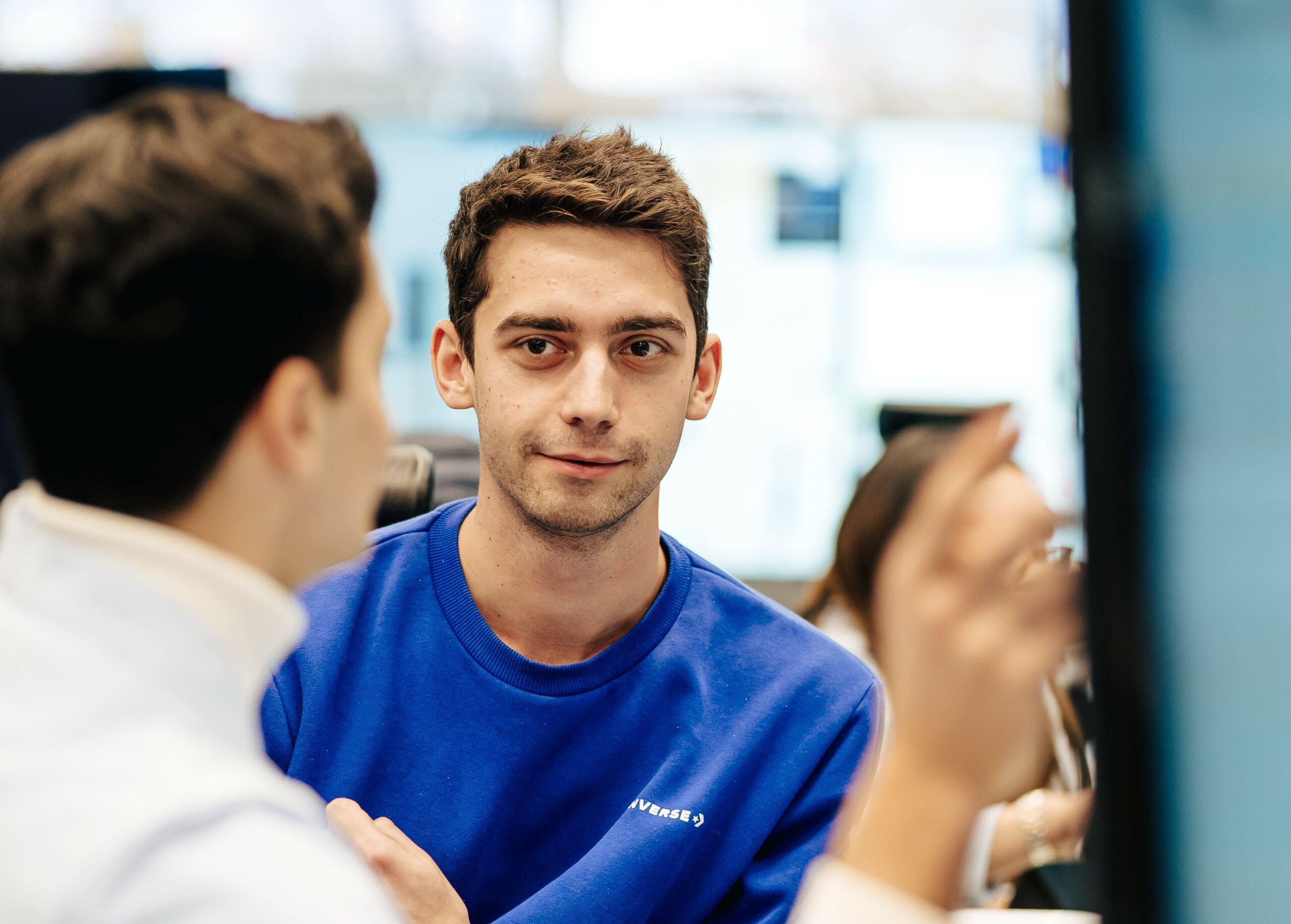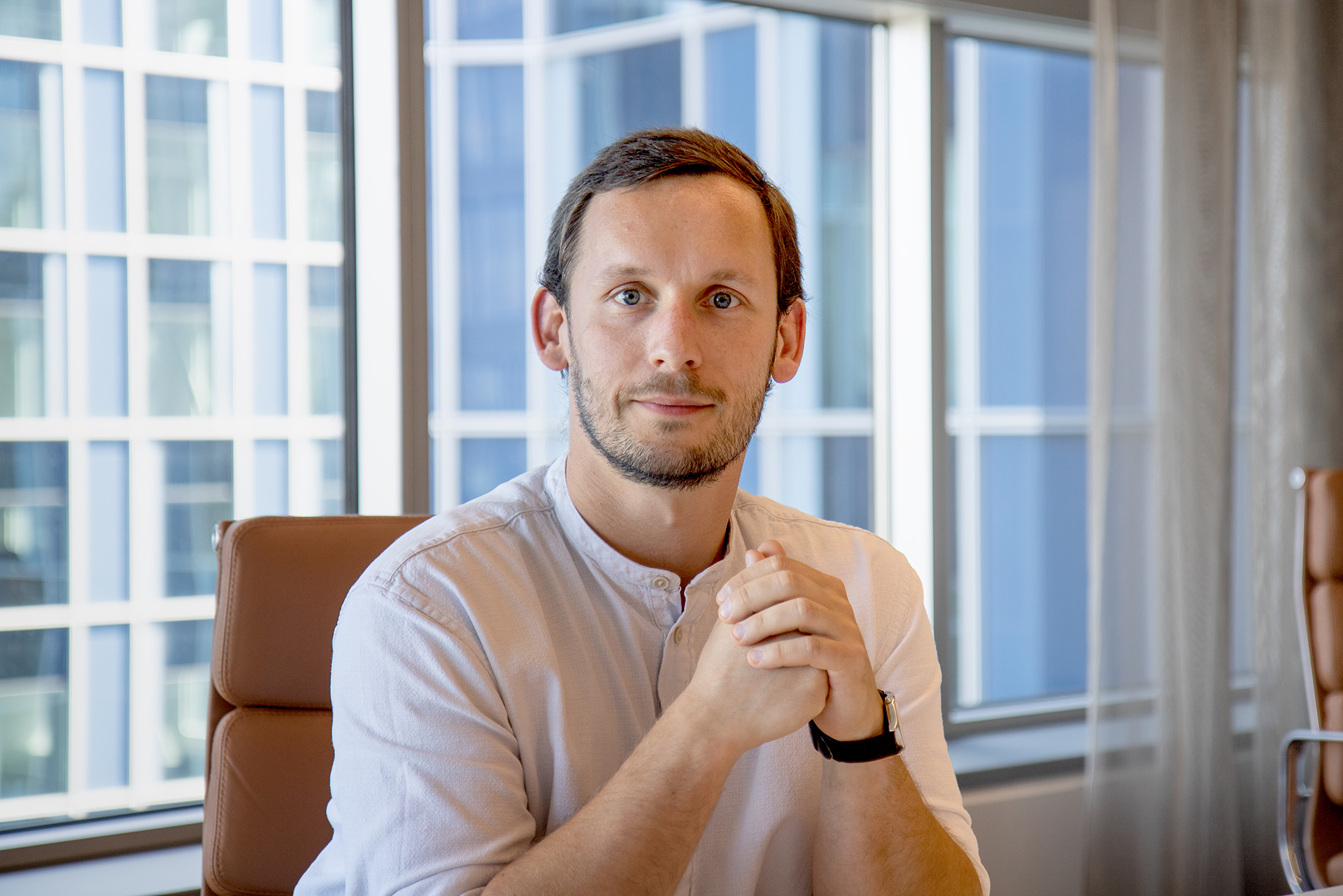Charley Pincombe’s journey from history major to Global Head of Procurement at Optiver

Charley Pincombe, Optiver’s Chicago-based Global Head of Procurement, didn’t always know she was going to work in the tech space. A former history major, Charley started her career in the public sector and quickly came to love the tech-focused subject matter of her day-to-day role. Charley found her perfect match at Optiver, where she blends her operational expertise and passion for innovation in an environment that mirrors the agility and spirit of a startup.
We sat down with her to hear more about her unique journey and her advice for navigating a career in tech.
Meet Charley:
Role: Global Head of Procurement
University: Northwestern University
Hometown: Lake in the Hills, IL
Hobbies: Running, going to concerts in the city
Tell us a little bit about your background and how you came to join Optiver.
I joined Optiver in January of 2020 to set up a local Chicago procurement team; back then, Optiver Chicago didn’t have a dedicated procurement function.
Before Optiver, I got my start working in government, more specifically doing IT procurement in the public sector. I then left to set up the procurement team at a startup before joining a management consulting company to focus on procurement strategy.
When I found Optiver, it was the perfect opportunity to mix the things that I really liked from my prior experiences—all the operational rigor of an established company balanced with what felt like the entrepreneurial culture of a startup.
What does a typical day look like for you in your current role?
No day is ever the same—which is the best part! My typical day can range from negotiating a multimillion dollar contract with a provider in the trading or connectivity space, to rolling out a new process or policy to help our Tech and Trading teams get the goods and services they need to grow. It could also be sitting in a meeting brainstorm to figure out how we are going to expand to a new data centre or trade on a new exchange. My team gets to be in the thick of it on tons of tech initiatives.
Coming from the government/public sector space, did you have a background in tech prior to Optiver? If not, what was it and what skills were transferrable?
I didn’t have a background in tech coming out of school, but I’m lucky that I got to start my career working on tech-focused contracts. Obviously working in government is different from trading, but what made me successful there was constantly asking questions about the subject matter and finding ways to improve the way we worked. If you’re a smart and critical thinker, it won’t matter what industry you’re in—you’re going to succeed if you can think through things logically, want things to get better and are never happy with the status quo. That’s the mindset that I’ve always had, even in government, which was a perfect fit to Optiver because we have a culture that expects and encourages people to think in ways that level up the organisation.
“If you’re a smart and critical thinker, it won’t matter what industry you’re in – you’re going to succeed if you can think through things logically, want things to get better and are never happy with the status quo.”
What do you enjoy most about your job in tech, and why did you choose this industry?
The fact that I have never been bored once at Optiver is a huge highlight. What excites me the most (and keeps my job interesting) is the competitiveness with the market and industry—we always have to be innovating. We can’t ever be the same as we were yesterday, or we’ll fall behind. Everything is constantly changing, which requires us to always be on our A-game and focus on continuous improvement. That’s something that isn’t necessarily treated as a first-class concept at other places or organisations.
This drive for innovation and a culture where the best idea wins was exactly what led me to a career in tech. I wanted to be part of an industry that forced me to continuously learn and to work in an environment where anyone can say, “Hey, I think we can do this better.” This culture of never standing still and the opportunity to contribute to that progress is what drew me into the field and keeps me excited about coming to work every day.
Do you have any advice for those who are looking to get into tech but may be worried about their lack of ‘technical’ background or experience?
For me, I don’t code and I’m not “technical” per se. But sometimes the biggest tech challenges can be figuring out how we can operate efficiently and safely within tech teams, and how to learn from our mistakes.
What’s the best piece of advice you’ve received? Have you passed that on to others?
The best piece of advice I’ve received is to ask questions until you’re blue in the face. It sounds trivial, but it does make you a better member of the firm if you’re unsatisfied with not understanding what’s going on. The people who can add the most value are the people who understand the problem the best.
For me, I’m asking questions constantly every single day—how did we get here? Why are we here? What are we trying to solve? What does success look like? It’s hard to propose innovative solutions if you don’t know what’s happening around you.
I try to pass this along to my team—the worst thing someone can do in their role is say, “Tell me what you want me to do.” The most impactful people I’ve worked with are the ones who notice problems, ask a lot of questions and suggest creative solutions.
What do you think differentiates Optiver in the industry?
At Optiver, more than any other place I’ve worked, people have the freedom to speak up, offer creative solutions, and take accountability and ownership themselves to bring something to completion. You don’t have to be the most senior person to work on the most interesting or most complex project.
What does inclusion mean to you?
For me, inclusion (in a work setting) is feeling like I am supported to speak up and offer solutions, dig into problems, question the work of others and put myself in a position to not only succeed, but also to fail—all while knowing that someone has my back. When you’re working in an environment where you don’t have that inclusion, you’re probably less likely to put yourself out on a limb. If you have an inclusive team and organisation supporting you, you’ll feel welcome and that your ideas mean something.
Having creative ideas requires a level of vulnerability. Saying, “I want to change the way we work,” is not an easy thing even if you’ve been with a company for 15 years! It’s about setting the culture and creating the space for people to step up.
What is your hope for the next generation of women in tech?
For the next generation of women in tech, I hope that they are free to do their best work without having to think about the fact that they’re women in tech. Being a woman in tech shouldn’t have any sort of disadvantage in terms of a woman’s career path, the type of things she can specialise in, the way she creates impact, or the vision she has for her team and for the organisation. All I can ask for is that there’s no extra hurdle.
Was there a defining moment where you realised the impact of technology within a trading firm?
I was probably a bit naïve to it coming in. I joined to start the procurement team, with a big focus on how to get more hardware in the door faster, better and more cost-efficiently. Through that, I was able to use all of my procurement skills from the past, but it really forced me to ask all of kinds of questions—why do we need these things, why are we buying this many servers, why are we paying this much? It was really cool to hear how every single one of the decisions made regarding those questions—even down to the tiny details—all link back to our competitive edge. It goes back to ensuring that we are operating the best and the fastest in everything we do. For me, that was the hooking point very early on. If we are able to negotiate the best price or get a piece of hardware faster or more efficiently, we’re really driving the top line of the business by having access to the best technology.
“The most impactful people I’ve worked with are the ones who notice problems, ask a lot of questions and suggest a creative way to solve it.”
Any advice for future leaders and culture-carriers?
I think a lot of people perceive obstacles, saying, “I’m not qualified,” or “I don’t feel prepared,” or “I stepped up and people didn’t agree with me.” You just have to keep trying, asking questions and putting yourself out there. If you don’t know something, learn it! Ask questions or find a friend at the company who can teach you. If you’re a good problem solver and can ask questions, you’re going to find a lot of ways to add impact or value—even if you’re not the most technical person in the room. This is all solvable if you’re there to add value.
I personally try to build and foster that culture on my team by encouraging my team members (whether they’re the most junior or most senior), to feel accountable for solving a piece of the puzzle. If you’re feeling frustrated about something or feeling pain, a process is probably broken and you have the opportunity to solve it. It doesn’t matter if you’ve been out of school for six months or six years; if you’re noticing that something feels difficult and that you’re not getting value from it, you’ve found an area to step up and optimise. Everyone is equally equipped, especially in a culture like Optiver’s, to say “I found a way, here’s how we should do it.”
Ready to embark on a dynamic career path like Charley’s? Explore opportunities at Optiver.





